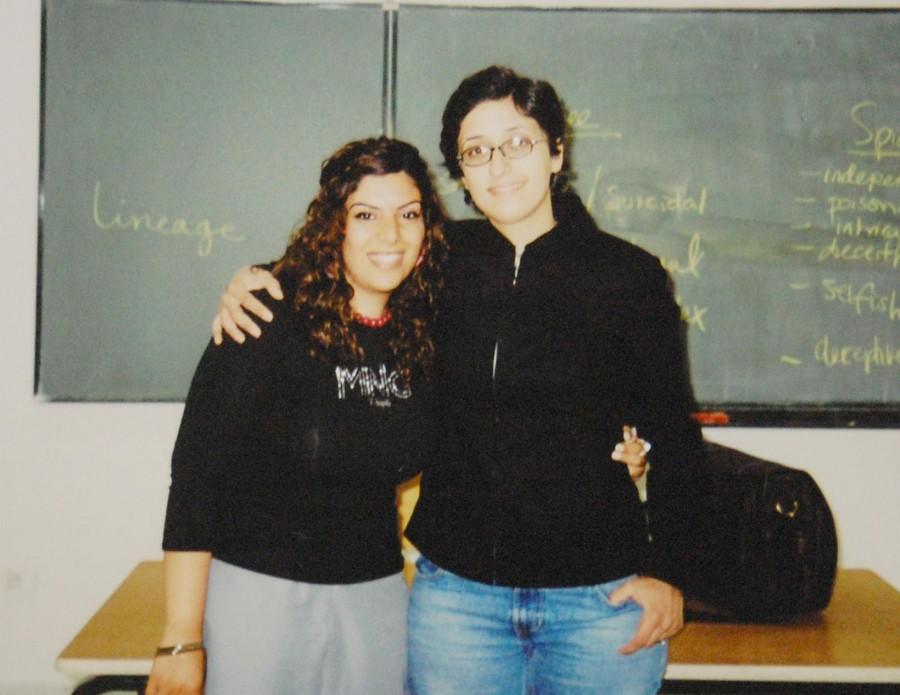“I always knew I wanted to be a professor,” said Diya Abdo, assistant professor of English. At age 13, Abdo accompanied a cousin to her English lectures at the University of Jordan. The experience of being in a college classroom was a formative experience for the young Abdo.
Abdo, a first-generation Palestinian born and raised in Jordan, found herself “underwhelmed” by the teaching style of the professor who she heard lecturing and saw where teaching could be done differently.
“Listening to those lectures with my cousin was the single experience that determined what kind of teacher I wanted to be,” said Abdo. “I was also really passionate about literature by that point anyway, and so combining my enthusiasm for literature and my newfound appreciation for teaching done well was not a hard step.”
A few years later Abdo began her undergraduate career in Jordan at age 15. Abdo attended Yarmouk University, a public university close to the Syrian border.
At 19, Abdo was accepted to New Jersey’s Drew University graduate program in English literature. However, the move to the United States was challenging and traumatic in many ways.
“I had never been to an English-speaking country by that point or indeed been on a plane in more than a decade,” said Abdo. “I had never been separated from my family to such an extent and the new cultural experience was alienating and overwhelming.”
Despite these challenges, Abdo completed M.A. and Ph.D. programs while working full time, first as a secretary at the financial aid office, and eventually teaching two courses a semester at Drew and then at Ramapo college.
After the events of Sept. 11, 2001, Abdo felt motivated to speak on behalf of Arabs and Muslims. Abdo found her interests shifting focus to Arab and Muslim women, and in 2003, Abdo moved back to Jordan with her American husband. During that time, she taught at two separate institutions: Al-Ahliyya Amman University and the Arab Open University.
Abdo soon found herself in trouble for an article she published while in her last position.
“The administration felt that my scholarship was problematic in that it, according to them, conflicted with the institution’s Islamic values,” saidAbdo.
Abdo realized it would be difficult to publish the kind of work and research that she longed to do if she stayed in Jordan. That realization put her on the path that eventually led her to Guilford. However, Abdo’s love for her home has never been lost in transition.
“I love being an Arab, and so my fondest memories all center around things that make up my identity: family functions, my very close relationship with my siblings, my Arabic language, certain Jordanian and Palestinian meals and music that I love,” said Abdo.
Abdo said that her greatest inspiration is her grandmother.
“She was illiterate but also the smartest person I ever knew,” said Abdo. “Her forbearance, her intelligence, her resilience in the face of unimaginable adversity are a constant source of awe.”
Abdo’s grandmother passed away two years ago, a day after Abdo found out she was pregnant with her daughter, who is named in honor of her great-grandmother.


Faisal • Dec 4, 2012 at 8:16 pm
I have known her ever since I’ve entered Amman Ahliyya University, yet I just cannot explain or put a word or two to say about this remarkable lady. It’s unfortunate that I haven’t taken any subjects with her regarding Literature, but at least I got to see her everyday in my university and that’s quite enough to me. Dr. Diya is passionate about teaching, motivating her students and just loved by everyone she has teaches, that’s what colleagues of mine told me and of course former students of her classes. Guilford students are fortunate to have this remarkable lady in their department, she’s a keeper and believe me she’s a gem. I wish her all the best of luck in everything and we really do miss her in Amman. God bless you Dr. Diya.